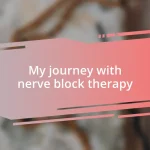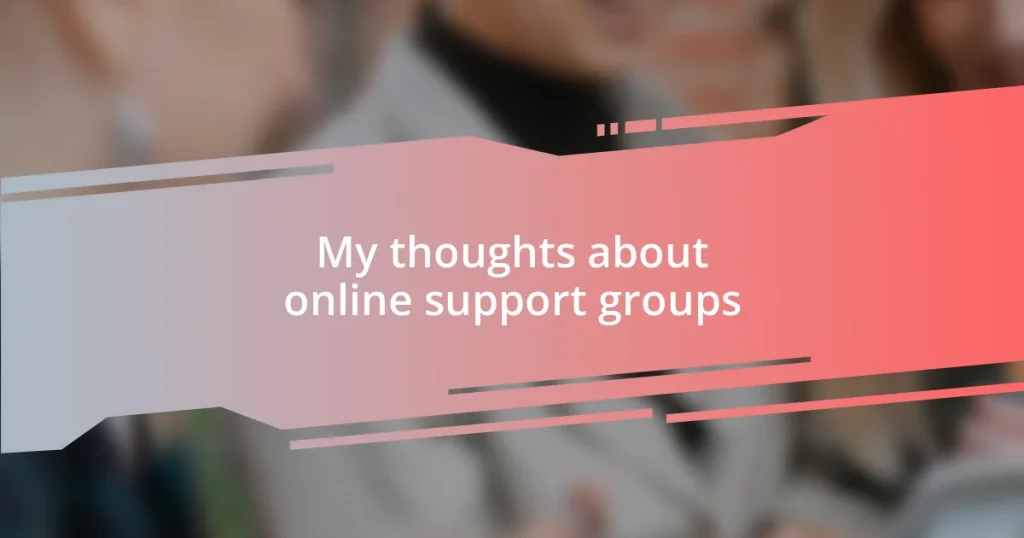Key takeaways:
- Online support groups offer emotional connection, accessibility, and a sense of belonging, facilitating personal growth through shared experiences.
- Finding the right support group involves using social media, community resources, and seeking recommendations, while prioritizing personal comfort and safety.
- Effective engagement in online groups depends on active participation, genuine sharing, and maintaining respect and empathy to foster a supportive environment.
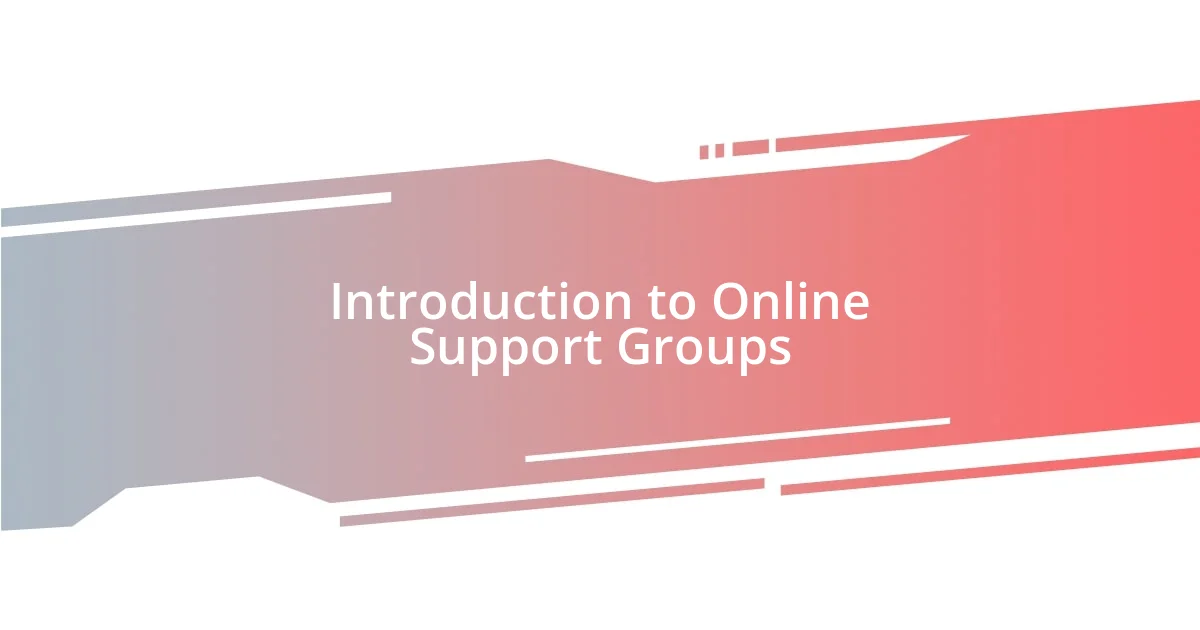
Introduction to Online Support Groups
Online support groups have emerged as a vital lifeline for many, providing a space where individuals can connect, share, and heal together. I remember my first experience joining an online forum after a significant loss; it felt both daunting and liberating. It made me wonder—how can a virtual space feel so comforting and understanding?
These groups open doors to new connections that often transcend geographic barriers, allowing people from diverse backgrounds to share their stories. For instance, I once stumbled upon a group focused on anxiety management while feeling overwhelmed in my own life. Hearing others articulate their experiences helped me feel less isolated, prompting a reflection on how shared vulnerability fosters community.
Moreover, the anonymity of online support allows individuals to express thoughts and feelings more freely than they might in face-to-face settings. Have you ever felt hesitant to speak openly in person? For many, the online environment provides a sense of safety that encourages honest discussions about personal struggles. I’ve seen countless members transform their lives through the compassion and encouragement found in these digital spaces, reinforcing the invaluable role they play in our modern society.
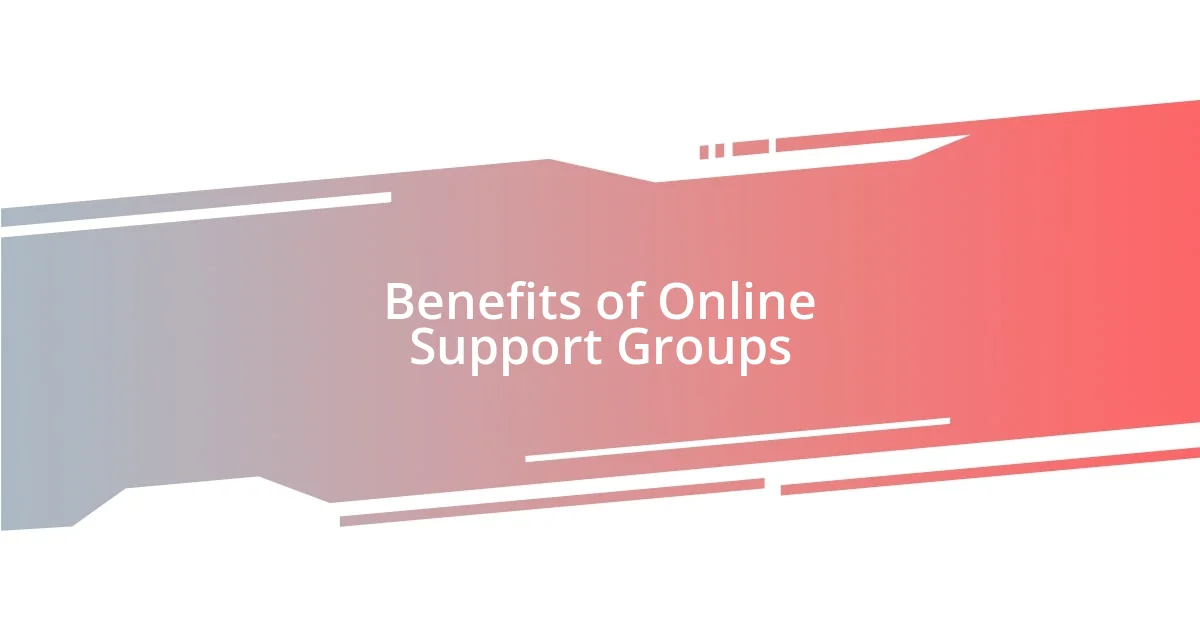
Benefits of Online Support Groups
Online support groups provide a unique opportunity for emotional connection that might be hard to achieve in conventional settings. I remember sitting in front of my laptop, initially skeptical, yet found myself opening up about my struggles with self-doubt. The comfort in knowing that others were experiencing similar feelings created an instant bond that lifted my spirits. It was a reminder that sometimes, vulnerability is the precursor to genuine healing.
Another significant benefit is accessibility. Whether you’re at home or on the go, you can engage with a community whenever you need it. I recall a late-night moment when anxiety struck, leaving me restless. I logged into a group dedicated to mental health and found solace in shared tips and encouragement right when I needed it most. This immediate access can be life-changing for someone in crisis.
Lastly, these groups often foster a sense of belonging that individuals may struggle to find elsewhere. In my experience, connecting with peers who truly understand your journey creates a safe space for personal growth. I’ve witnessed members encouraging one another to take steps toward their goals, transforming their lives in profound ways. The collective support from others can often act as a catalyst for positive change, encouraging you to embrace your journey fully.
| Benefit | Description |
|---|---|
| Emotional Connection | Creates bonds by sharing personal struggles in a safe environment. |
| Accessibility | Available anytime and anywhere, providing support when it’s needed most. |
| Sense of Belonging | Fosters a community where individuals feel understood and encouraged to grow. |
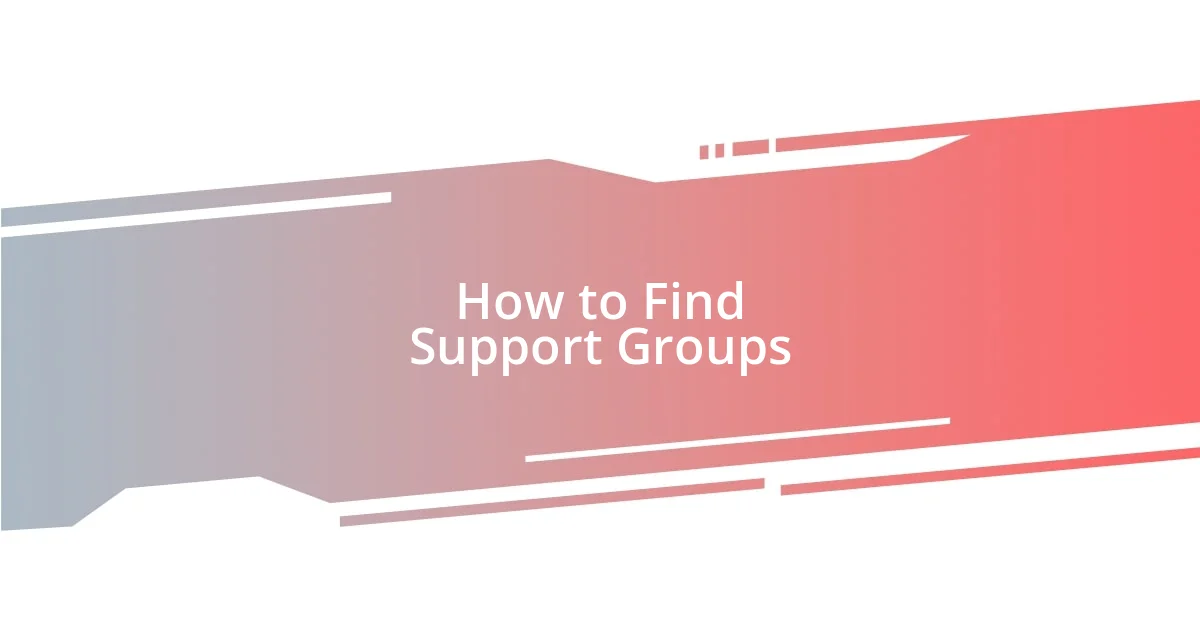
How to Find Support Groups
Finding the right online support group can be a powerful step in your journey toward healing. I often recommend starting with a quick internet search, using keywords that reflect your specific needs, such as “support groups for anxiety” or “grief support forums.” A trusted platform can make a tremendous difference; I remember finding a group through a mental health app after going through a tough period which truly felt like the universe guiding me to the right place. It was a comforting realization that there were people out there who genuinely understood what I was going through.
Consider these strategies to help you navigate the vast online landscape:
- Use Social Media: Platforms like Facebook and Reddit host a variety of groups covering numerous topics, providing supportive spaces to connect with others sharing similar experiences.
- Check Community Resources: Websites dedicated to mental health often have directories where you can find listed support groups tailored to your situation.
- Ask for Recommendations: Sometimes a friend or therapist can point you in the direction of a group that aligns with your needs, making the search feel less daunting.
- Explore Beyond Forums: Look into video chat groups, podcasts, or apps specifically designed for support; they can offer interaction styles that might resonate more with you.
As you embark on this journey to find a support group, trust your instincts. It’s crucial to choose spaces where you feel safe to express yourself. I remember the first time I posted in a new forum; my heart was racing, but the immediate supportive responses reassured me it was the right choice. These connections can be incredibly healing, transforming your mindset as you realize you are not alone.
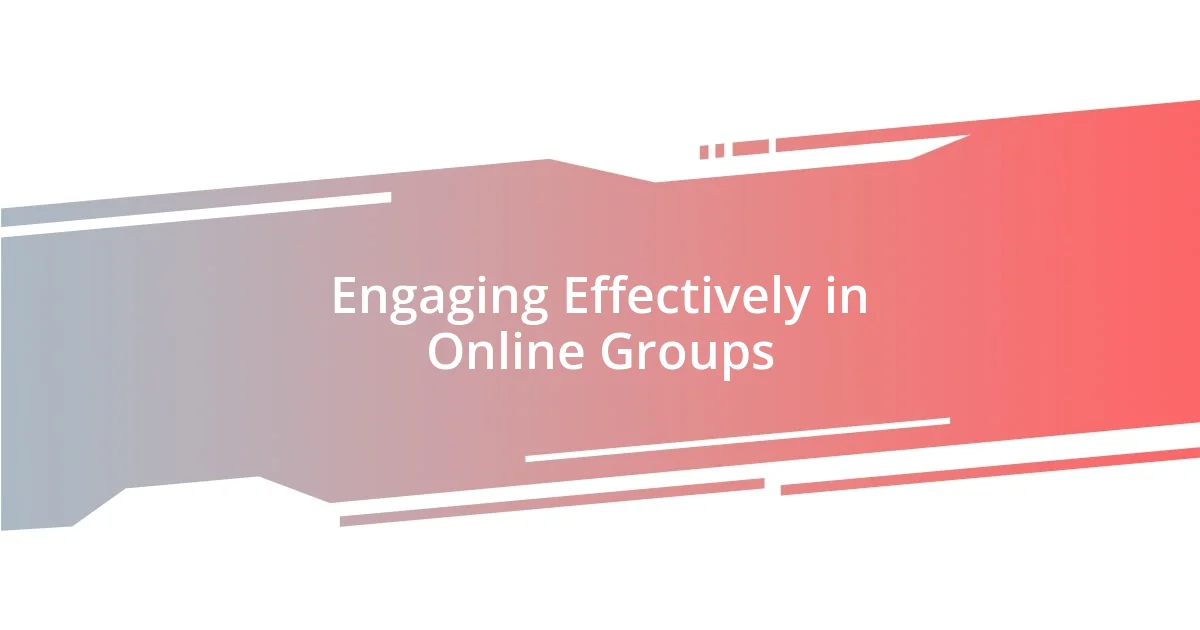
Engaging Effectively in Online Groups
Engaging effectively in online groups requires active participation and authenticity. I’ve noticed that when I share my experiences genuinely, others are more likely to reciprocate, creating a rich tapestry of connection. Have you ever felt hesitant to speak up? I certainly have, but each time I overcome that fear, I find that it not only benefits me but also encourages others to open up as well.
Another aspect that stands out is the importance of being present during discussions. When I make a conscious effort to engage—whether by commenting on others’ posts or sharing support—I realize it fosters a more vibrant community. It’s surprising how a simple “I can relate” can spark a meaningful conversation. Have you tried it? You’d be amazed at the depth of dialogue that can emerge from just one small interaction.
Also, don’t forget the value of respect and empathy in these settings. I learned early on that understanding differing perspectives expands my own horizons. I recall a situation where someone shared a viewpoint that initially challenged my own beliefs, but by listening without judgment, I found common ground. Isn’t it interesting how engaging in respectful discussions can lead to personal growth for everyone involved?
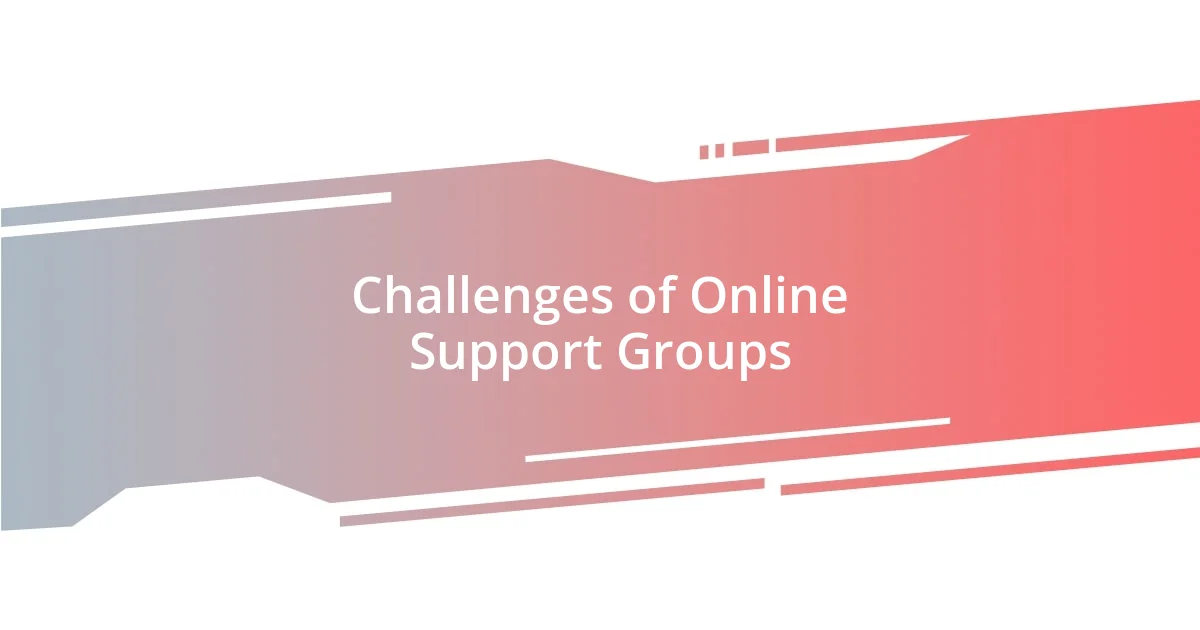
Challenges of Online Support Groups
Engaging in online support groups can present unique challenges that are often overlooked. For instance, I once joined a group where the discussion moved too quickly for me to keep up. This left me feeling disconnected and questioning if I could truly benefit from the experience. Have you ever felt like you just couldn’t catch your breath in a conversation? It’s quite disheartening and can lead to feelings of isolation despite being surrounded by people who share your struggles.
Another significant hurdle is the lack of non-verbal cues in online communication. I remember attempting to empathize with someone in a chat, only to realize later my message had unintentionally come across as insensitive. Without facial expressions or tone of voice, it’s easy for misunderstandings to arise, leaving both parties feeling hurt. Have you experienced a miscommunication online? It’s frustrating, and it reinforces the need to be intentional and clear with our words.
Moreover, the anonymity afforded by online platforms can sometimes backfire, leading to negative behaviors. I’ve encountered instances where individuals felt empowered to express harsh opinions or dismissive attitudes behind the safety of their screens, which can create a toxic environment. Have you noticed how discussions can quickly spiral when people forget that there are real emotions involved? It’s essential to foster environments where kindness prevails over anonymity, making our shared journey of healing truly supportive.








